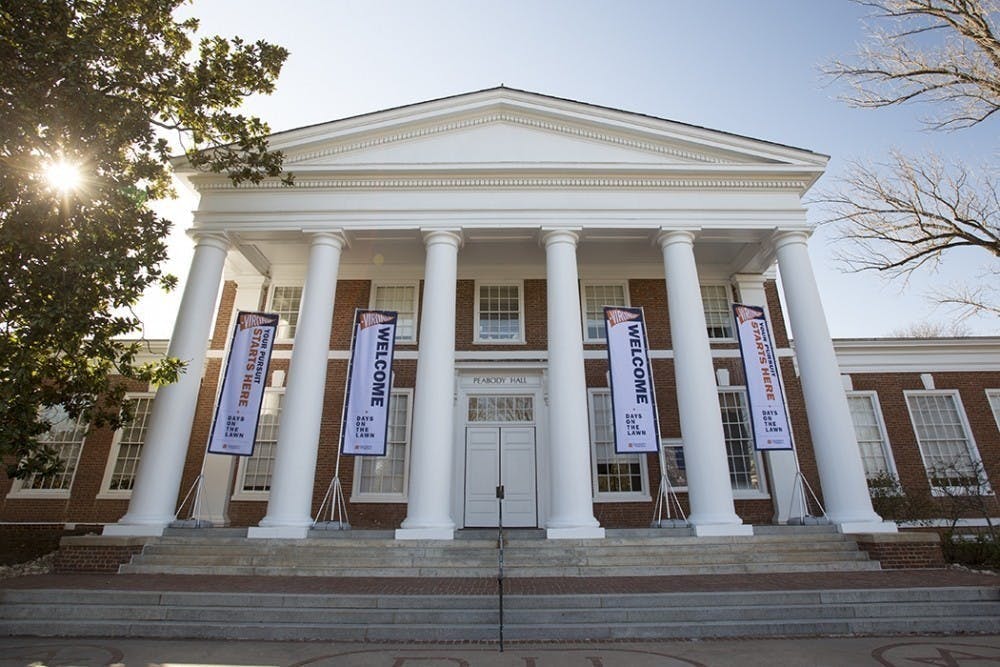At the University, the Office of Admission takes into consideration the legacy status of applicants. Legacy status is defined by the University as “a student whose parent, step-parent, or adoptive parent has a degree from UVA.” Students with this status are almost twice as likely to be admitted to the University than their non-legacy counterparts. Many institutions across the country consider the legacy status — and these legacy students are overwhelmingly white, wealthy and admitted at higher rates than non-legacies. If the University seeks to have fair and equitable admissions processes — which it should, as a public institution — it should stop considering legacy status.
Legacy admissions disproportionately benefit white applicants. From 2009 to 2014, 27.28 percent of white students admitted to Harvard were either legacy, on the “dean’s interest list” or were the children of faculty, compared to only 5.82 percent of black students admitted. Here at the University, in 2018, eight percent of all admitted students were white legacies, while less than one percent of admitted students were non-white legacies.
Furthermore, legacy applicants to the University continue to be admitted at higher rates than non-legacies. For class of 2023, 42 percent of legacy applicants to the University received an offer of admission — nearly twice the rate of non-legacies. Although the mean SAT score of legacy applicants was 11 points higher than non-legacy applicants, this small difference clearly does not account for the massive difference in the offer rate. Further, since legacy students tend to be wealthier, they most likely have access to resources like SAT prep courses that many non-legacy students do not have access to.
On the Alumni Association’s FAQ page for their Admissions Liaison Program, which provides resources to legacy students, it states “legacy tie is a positive supplement to your application, and while impossible to quantify, legacy status is an important consideration in the deans’ application review.” It’s no secret that legacy students are given an advantage in the admissions process.
Not only do legacy students have a leg up in the formal admissions process, but there are also informal processes that afford them an advantage. The University maintains an admissions “watch list” that flags “high priority” applicants — including legacy students and students linked to major donors — for additional review. This additional review can move a student to the waitlist, or even result in an admissions offer that would not have otherwise been given. The University notes that this “watch list” can also benefit first-generation applicants, but this is not the same as providing a second look to legacy applicants. Legacy applicants presumably have access to resources like SAT prep courses and private schooling that would allow them to get into the University on their own merits. They would have access to other resources as well like the aforementioned Admissions Liaison Program, while first-generation applicants do not have access to these resources. Nevertheless, the University provides legacy applicants with yet another advantage in the admissions process by the usage of the “watch list.”
Universities like U.Va. offer two main defenses of maintaining legacy admissions. The first, given by Provost Liz Magill at Student Council’s forum on the University watch list, is that legacy students bring “intergenerational connection” to the University. The University has been a majority white and wealthy institution since its founding — thus, it is going to be mostly rich white students who benefit from this “intergenerational connection.”
Further, the main reason why many universities would want to foster this intergenerational connection, and the second defense of legacy admissions, is that it increases alumni donations to the University. There is a common belief that alumni are more likely to donate if their child is accepted into the University, but this has not been proven to be true. A study that tracked alumni donations from 1998 to 2008 at the top 100 American universities showed that legacy preferences do not correlate with increased donations from alumni. At Yale, the rate of legacy admissions from 1998 to 2010 decreased, while alumni donations increased. Further, universities such as MIT, Cal Tech, Oxford, Cambridge, UC Berkeley and Johns Hopkins do not consider legacy status, and none of them are strapped for cash.
While about 42 percent of admissions directors at private institutions take legacy status into consideration, only six percent of admissions directors at public institutions do — which includes the University of Virginia. As a public institution, the University has a duty to democratize education, level the playing field and have a fair and equitable admissions process. By considering legacy status in the admissions process, the University runs contrary to that duty.
The University must abolish the consideration of legacy status to provide a fairer admissions process to this public institution. If the University wants to be “a top destination for first-generation students” and both “great and good,” it cannot continue to provide unfair advantages to white, wealthy and well-connected students. Abolishing legacy admissions will send a clear message that the University is truly committed to cultivating a more diverse student body and living up to its creed as a public institution.
Ellie Brasacchio is a fourth-year student in the College and currently serves as the President of Student Council.







